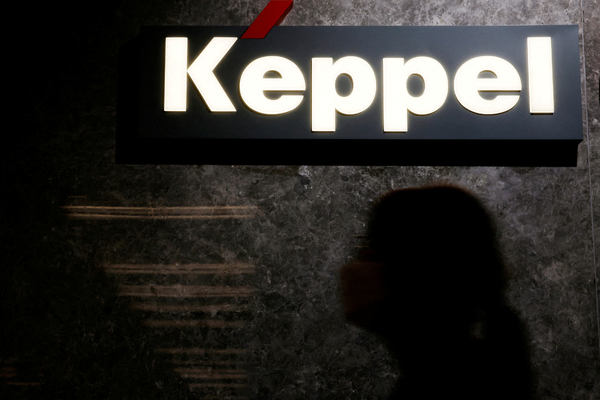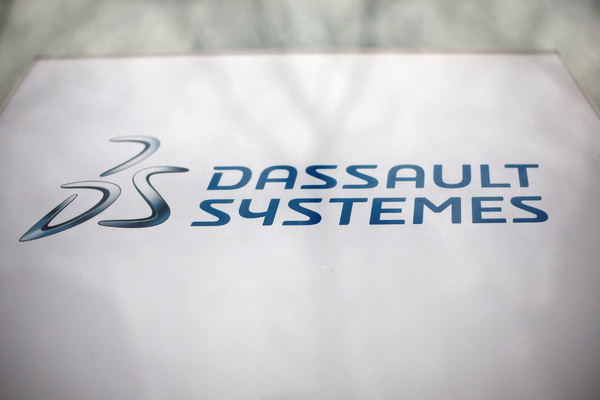The Expert View: Digitising the Supply Chain
Sponsored by OpentextDespite mounting pressure from regulatory changes and demand for greater efficiency, many organisations are still at an early stage in digitising their supply chains, according to attendees at a recent Business Reporter briefing.

Paper still dominates supply chain processes in many organisations. Opening a Business Reporter dinner briefing at the House of Lords, Mark Morley, Senior Director of Business Network Product Marketing & Industry Marketing at OpenText, estimated that around half of businesses he talks to haven’t yet made the digital transition.
He told the audience, all senior executives with extensive supply chain experience, that with new regulations like Digital Product Passport and Scope 3 reporting on the horizon, the pressure to develop digital supply chains has never been more intense.
Digital Maturity Gap
Many organisations are just beginning their digital transformation, however. "We’re still using lots of spreadsheets," admitted one delegate. Others described struggling to extract meaningful insights from their data, saying that it was often difficult to connect disparate data sources because of departmental siloes.
Yet counter-intuitively, too much data can be as problematic as too little. "If your analysts aren’t well-trained," one attendee cautioned, "excessive data can justify almost any hypothesis, and there’s no progress." The key, they emphasised, lies in having people who can transform raw data into actionable insight.
On the path to digitisation, quick fixes often win out over comprehensive solutions. "It can be quicker to just get it running on a spreadsheet than try to get an entire change program approved,” one delegate admitted.
Barriers to Progress
Legacy technology can also be a formidable barrier. When companies grow rapidly, they often bolt-on new systems without worrying about integration. The result? Multiple versions of the truth, each telling a slightly different story. "Getting back to one source of truth," an attendee said, "takes both time and significant investment."
Internal changes will only make so much difference, however, because supply chains depend on connecting a range of organisations. "No two retailers have the same supply chain," explained one participant. That naturally dissuades organisations from investing in tech that works for only one customer. In an environment where resources are already stretched thin, such uncertainty can stifle progress.
Competition for resources adds another layer of complexity. "Supply chain is often not the main priority," revealed one executive. In industries with razor-thin margins, production improvements typically trump supply chain investments. Attendees said they understand why that is the case, but it can mean supply chains that are less effective than they could be.
Data Quality and Priorities
Manufacturing companies face their own challenges. Data integrity isn’t just important – it’s mission-critical. Yet surprisingly few organisations prioritise getting their master data right, a fundamental step that could prevent countless downstream problems.
One executive illustrated the cost of poor visibility: "When I joined my company, nobody knew how much we spent on logistics." It turned out that the organisation was spending £100 million a year, without anything like the governance that was being applied to other parts of the business.
Customer communication drives another push for better data. "The sooner we know about delivery timing and missing items," one attendee noted, "the faster we can inform customers about changes." This underscores that supply chain transformation isn’t just about internal efficiency – it’s about customer satisfaction too.
Drivers of Change
Despite the hurdles, several forces are pushing organisations toward digitisation. Waste elimination has emerged as a powerful motivator, especially for companies handling perishable goods. One food retailer gave the example of the supply chain for berries: "They’re fragile and have a short life. How do we get crucial information to store managers about what’s coming and when? Every minute counts in preventing waste."
Technology itself is evolving to meet these challenges. "Shifting towards an agnostic data reservoir," one delegate explained, "has freed us from legacy ERP constraints." Now, plug-and-play systems offer easier access to data, they said, and these can easily be switched out if requirements change. Smart dashboards can also be deployed to trigger alerts when shipping costs spike above predetermined levels, helping organisations spot problems before they escalate.
Regulation, too, drives change – though not always in the most effective way. Tight deadlines often force organisations to opt for quick fixes rather than strategic solutions. It’s a pattern that many attendees recognised but few had solved.
Simon Ward, VP Solutions Consulting at OpenText, wrapped up the briefing with an observation about evolving priorities: "While data transfer remains crucial, we’re discovering that our customers find even more value in the insights that data provides." This shift – from simply moving data to understanding it – is an important reason for accelerating supply chain digital transformation.
The path forward won’t be easy. But as organisations grapple with current challenges while preparing for future regulations, one thing is clear: the digital supply chain is inevitable. The question is who will lead the way.
About OpenText
OpenText™ is the leading Information Management software and services company in the world. We help organizations solve complex global problems with a comprehensive suite of Business Clouds, Business AI, and Business Technology. For more information about OpenText (NASDAQ/TSX: OTEX), please visit us at: www.opentext.com
Kaltrina Jashari
You may also like
Building Robust Supply Chains: Strategies for Resilience and Compliance
Driving IT operational efficiency with AI
Driving programme success with end-to-end-observability
Most Viewed
Winston House, 3rd Floor, Units 306-309, 2-4 Dollis Park, London, N3 1HF
23-29 Hendon Lane, London, N3 1RT
020 8349 4363
© 2025, Lyonsdown Limited. Business Reporter® is a registered trademark of Lyonsdown Ltd. VAT registration number: 830519543





